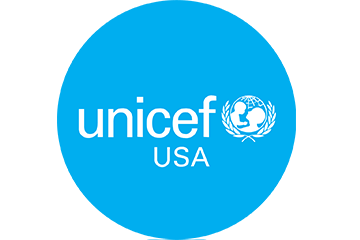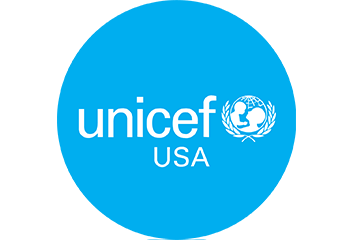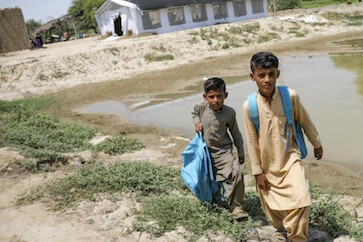ISACCEA, Romania – “I’ve been crying for two days,” says Olena, as she recounts how she fled her home in Ukraine to escape the escalating conflict. “My husband said I should leave to keep our boy safe.”
Olena and 8-year-old Yaroslav are two of the thousands of people, mostly women and children, who have just stepped onto land in Isaccea, a port town in eastern Romania, after crossing the Danube River on a crowded ferry. But while everyone fleeing the conflict is relieved to have made it to safety, many of them are also left confronting enormous uncertainty over what will happen next.
I don’t know where I will go now, or if I’ll ever see my husband again.
“I don’t know where I will go now, or if I’ll ever see my husband again,” Olena says. It’s a tragic and desperate story, one echoed by every woman and child we meet. The sense of shock among these families is palpable as they describe how their lives have been turned upside down by the conflict.
“I told [my daughters] it’s a vacation for several weeks,” says Iryna, who arrives on a later boat. She says she has been trying desperately to manage the growing anxiety felt by her two daughters, 5-year-old Dasha and 8-year-old Masha, over what is happening.
A volunteer offers warm bread to Nichita, 7, in Isaccea, Romania. He and his mother (in red) crossed the Danube by ferry from Ukraine on March 4, 2022. © UNICEF/UN0602237/Câtu
The current scenes are in stark contrast to what someone standing at the dock would have seen just a couple of weeks ago. Then, the ferry was shuttling families taking holidays, businesspeople traveling for meetings or people going to visit relatives or friends. Today, people have taken the journey in a desperate bid to save themselves and their families.
“I left for my children,” Iryna says. “I wouldn’t have gone, if it wasn’t for my daughters.” She shows us a colorful school bag that the family packed with books. Aside from that, the only things they could carry were food, medicines and a few items of clothing.
We didn’t sleep at all … The siren was going off and we were underground.
Iryna has left family, her home and her business behind, but the creeping violence left her no choice. “We didn’t sleep at all, I don’t remember sleeping. The siren was going off and we were underground,” Iryna says as she struggles to recount the horrors of recent days.
“In Odessa, I had a store that sold beautiful clothes, but now I can’t imagine what’s happening.” She says her husband, a sailor, was abroad when the conflict started. It’s visibly difficult for Iryna to reflect on the life that she built for her family, a life she had no choice but to leave behind for the sake of her children’s safety.
Masha, left, and Dasha play games on mobile devices after arriving in Isaccea, Romania, with their mother. © Toby Fricker for UNICEF
It’s a nine-hour drive north to the town of Sighetu Marmtiei, past the serene and snow-covered scenery of the Carpathian Mountains. Women and their children are arriving by the hundreds, if not thousands. Some are arriving in cars, but most are wheeling suitcases and carrying backpacks containing whatever they could quickly pack.
There’s no water to cross here, but the stories are similar.
Maria and her 3-year-old daughter, Ksenyna, sit at a UNICEF-supported ‘Blue Dot’ space. The hub provides information and guidance for people arriving, family reunification services when needed, and a place for children to rest and play a little.
“I have one reason I’m here,” Maria says. “It’s for my daughter, she was very afraid.” Ksenya is focused on Krosh, the soft toy she brought with her. In the background, the voices and cries of children pierce the icy air.
It was too dangerous to stay … Now I have nothing.
Maria fled home when the fighting came within hundreds of yards of them. “It was too dangerous to stay,” she says. “I had some work before, but I have no idea what I should do. Now I have nothing.” She is waiting for a friend’s contact to pick her up and take them to Moldova. She is thankful that they are now safe. But the family’s future is now deeply uncertain, one of the many endless tragedies of conflict.
The common priority among every family arriving here is the children. Despite leaving husbands, partners and family behind, every mother here has made clear their determination to do whatever they can to ensure their children have a future.
Peace would make that much easier and is needed desperately, now.
UNICEF is on the ground in Ukraine and neighboring countries, providing children and families with humanitarian assistance. Your contribution can make a difference. Donate today.
Top photo: Aurelia comforts her 7-year-old son, Nichita, who is afraid of becoming separated from his mother. They arrived in Isaccea, Romania on March 4, 2022 after crossing the Danube by ferry along with many other refugees from Ukraine. © UNICEF/UN0602241/Câtu





